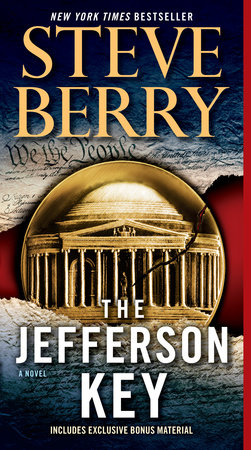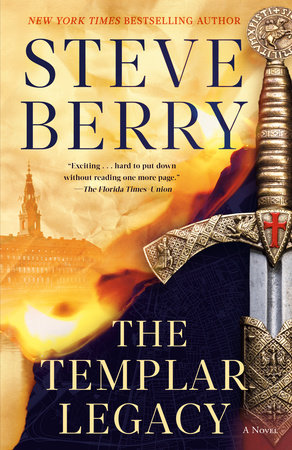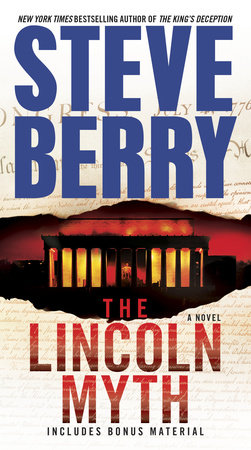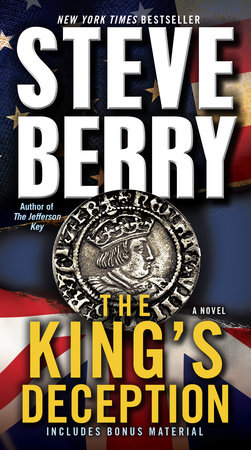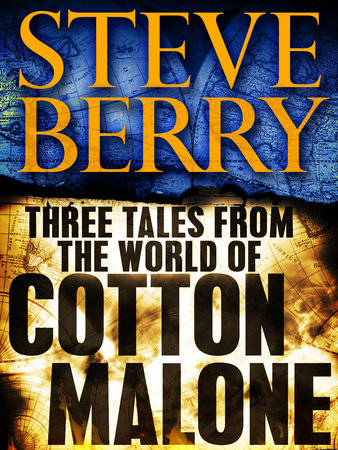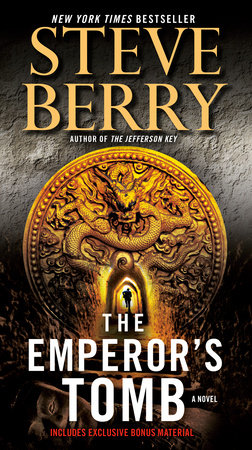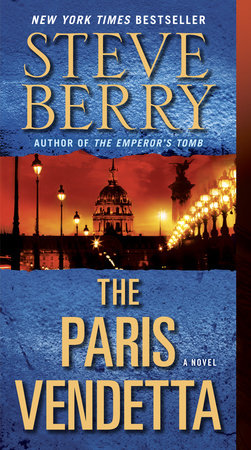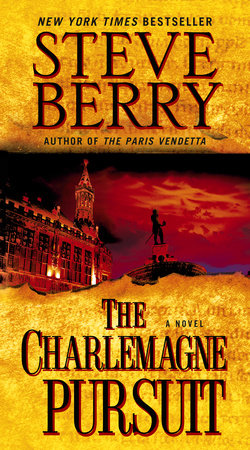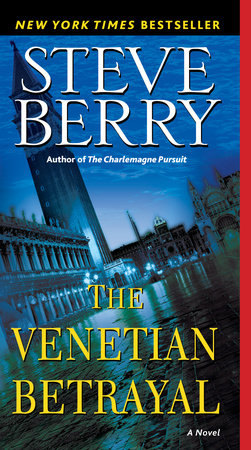Excerpt
The Jefferson Key (with bonus short story The Devil's Gold)
ONE
NEW YORK CITY
SATURDAY, SEPTEMBER 8, THE PRESENT
6:13 pm
One mistake was not enough for Cotton Malone.
He made two.
Error number one was being on the fifteenth floor of the Grand Hyatt hotel. The request had come from his old boss Stephanie Nelle, through an email sent two days ago. She needed to see him, in New York, on Saturday. Apparently, the subject matter was something they could discuss only in person. And apparently, it was important. He'd tried to call anyway, phoning Magellan Billet headquarters in Atlanta, but was told by her assistant, "She's been out of the office for six days now on DNC."
He knew better than to ask where.
DNC. Do Not Contact.
That meant don't call me, I'll call you.
He'd been there before himself the agent in the field, deciding when best to report in. That status, though, was a bit unusual for the head of the Magellan Billet. Stephanie was responsible for all twelve of the department's covert operatives. Her task was to supervise. For her to be DNC meant that something extraordinary had attracted her attention.
He and Cassiopeia Vitt had decided to make a New York weekend of the trip, with dinner and a show after he discovered what Stephanie wanted. They'd flown from Copenhagen yesterday and checked into the St. Regis, a few blocks north of where he now stood. Cassiopeia chose the accommodations and, since she was also paying for them, he hadn't protested. Plus, it was hard to argue with regal ambience, breathtaking views, and a suite larger than his apartment in Denmark.
He'd replied to Stephanie's email and told her where he was staying. After breakfast this morning, a key card for the Grand Hyatt had been waiting at the St. Regis' front desk along with a room number and a note.
PLEASE MEET ME AT EXACTLY 6:15 THIS EVENING
He'd wondered about the word exactly, but realized his former boss suffered from an incurable case of obsessive behavior, which made her both a good administrator and aggravating. But he also knew she would not have contacted him if it wasn't truly important.
He inserted the key card, noting and ignoring the do not disturb sign.
The indicator light on the door's electronic lock switched to green and the latch released.
The interior was spacious, with a king- sized bed covered in plush purple pillows. A work area was provided at an oak- top desk with an ergonomic chair. The room occupied a corner, two windows facing East 42nd Street, the other offering views west toward 5th Avenue. The rest of the décor was what would be expected from a high- class, Midtown Manhattan hotel.
Except for two things.
His gaze locked on the first: some sort of contraption, fashioned of what appeared to be aluminum struts, bolted together like an Erector Set. It stood before one of the front windows, left of the bed, facing outward. Atop the sturdy metal support sat a rectangular box, perhaps two feet by three, it too made of dull aluminum, its sides bolted together and centered on the window. More girders extended to the walls, front and back, one set on the floor, another braced a couple of feet above, seemingly anchoring the unit in place.
Was this what Stephanie meant when she'd said
important?
A short barrel poked from the front of the box. There seemed no way to search its interior, short of unbolting the sides. Sets of gears adorned both the box and the frame. Chains ran the length of the supports, as if the whole thing was designed to move.
He reached for the second anomaly.
An envelope. Sealed. With his name on it.
He glanced at his watch. 6:17 pm.
Where was Stephanie?
He heard the shrill of sirens from outside.
With the envelope in hand, he stepped to one of the room's windows and glanced down fourteen stories. East 42nd Street was devoid of cars. Traffic had been cordoned off. He'd noticed the police outside when he'd arrived a few minutes ago.
Something was happening.
He knew the reputation of Cipriani across the street. He'd been inside before and recalled its marble columns, inlaid floors, and crystal chandeliers a former bank, built in Italian Renaissance style, leased out for elite social gatherings. Just such an event seemed to be happening this evening, important enough to stop traffic, clear the sidewalks, and command the presence of half a dozen of New York City's finest, who stood before the elegant entrance.
Two police cars approached from the west, lights flashing, followed by an oversized black Cadillac DTS. Another New York City police car trailed. Two pennants rose from either side of the Cadillac's hood. One an American flag, the other the presidential standard.
Only one person rode in that car.
President Danny Daniels.
The motorcade wheeled to the curb before Cipriani. Doors opened. Three Secret Service agents sprang from the car, studied the surroundings, then signaled. Danny Daniels emerged, his tall, broad frame sheathed by a dark suit, white shirt, and powder- blue tie.
Malone heard whirring.
His gaze found the source.
The contraption had come to life.
Two retorts banged and the window on the other side of the room shattered, glass plunging downward to the sidewalk seventy-five feet below. Cool air rushed inside, as did the sounds of a pulsating city. Gears spun and the device telescoped through the now empty window frame.
He glanced down.
The window's shattering had attracted the Secret Service's attention. Heads were now angled up, toward the Grand Hyatt.
Everything happened in a matter of a few seconds.
Window gone. Device out. Then—
Rat- tat- tat.Shots were fired at the president of the United States.
Agents smothered Daniels to the sidewalk.
Malone stuffed the envelope into his pocket and raced across the room, grabbing hold of the aluminum frame, trying to dislodge the device.
But it would not budge.
He searched for and spotted no power cords. The thing, apparently a remote- controlled, high- powered weapon, kept firing. He saw agents trying to maneuver their charge back to the car. He knew that once Daniels was inside, armor plating would provide protection.
The device spit out more rounds.
He dove out the window, balancing himself on the frame, and grabbed hold of the aluminum box. If he could yank it from side to side, or up and down, at least he could deflect its aim.
He managed to force the barrel left, but motors inside quickly compensated.
Below, with incoming fire momentarily deflected, agents stuffed Daniels back into the car, which wheeled away. Three men remained, along with the policemen who'd been waiting at Cipriani.
Guns were drawn.
His second mistake now became evident.
They started firing.
At him.


